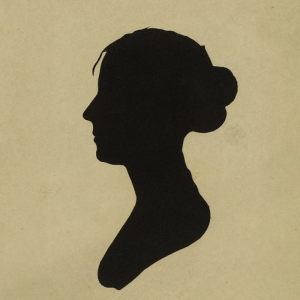Anne Hutchinson

Considered one of the earliest American feminists, Anne Hutchinson was a spiritual leader in colonial Massachusetts who challenged male authority—and, indirectly, acceptable gender roles—by preaching to both women and men and by questioning Puritan teachings about salvation.
Anne Marbury Hutchinson was born in England, the daughter of dissident minister Francis Marbury and Bridget Dryden. She grew up in Alford in Lincolnshire, where her father taught her scripture. In 1612, she married William Hutchinson, a merchant and member of a prominent family. From 1614 to 1630, she gave birth to more than a dozen children.
Although, like many women of her era, she had no formal education, Hutchinson was an avid reader and thinker. She was inspired by Reverend John Cotton, vicar at the nearby Lincolnshire parish. After Cotton joined other religious dissidents in North America, Hutchinson’s family migrated to the Massachusetts Bay Colony.
Hutchinson was forty-three years old when she arrived in Boston in 1634. Trained as a midwife, Hutchinson developed strong ties to local women and began holding meetings with them in her home to discuss Cotton’s sermons. Gradually, the meetings shifted to critiques of Puritan beliefs about the Covenant of Works—the role of good works and adherence to religious law in salvation. Hutchinson, like Cotton, stressed salvation by God’s grace alone (the Covenant of Grace), and she disavowed the Puritan belief that good works were a sign of God’s grace. Soon her meetings became popular with men, including prominent men.
But Hutchinson’s popularity disturbed religious leaders—who were the true authority in the theocratic Bay Colony. Hutchinson was tried in 1637 for heresy. But the real issue was her defiance of gender roles—particularly that she presumed authority over men in her preaching. At a time when men ruled and women were to remain silent, Hutchinson asserted her right to preach, which her husband avidly supported. However, her former mentor, Reverend Cotton, turned on her, describing her meetings as a “promiscuous and filthy coming together of men and women…”
The real issue to those in power was that she dared to overstep her place as a woman, and they feared she would likewise inspire other women to rebel. They said she had “rather been a Husband than a Wife and a preacher than a Hearer; and a Magistrate than a Subject.” In asserting her rights, Hutchinson miscalculated when she told the court that she had received a direct revelation from God and that she could interpret the scriptures for herself. The assertion sealed her fate.
In March, 1638, Hutchinson was excommunicated and banished from the colony. The Hutchinsons moved to Roger Williams’ more liberal colony of Rhode Island. In 1642, following the death of her husband, Hutchinson relocated to the Dutch colony of New Netherlands (now New York), and settled on Long Island Sound. There, she and her family—with the exception of one daughter—were killed in an Indian massacre. Initially, historians thought the attack was in response to whites taking Indian lands, however, some historians also speculate that it may have been provoked by Puritans. Today a river and a highway in that area bear the Hutchinson name.
- Breslaw, Elaine G. "The Times and Trials of Anne Hutchinson." The Historian 69.1 (2007): 131+. U.S. History in Context. Accessed February 1, 2015.
- Gomes, Peter. “Anne Hutchinson: Brief Life of Harvard’s Midwife, 1595-1643.” Harvard Magazine. November-December 2002. Accessed February 1, 2015.
- "Hutchinson, Anne." UXL Encyclopedia of U.S. History. Sonia Benson, Daniel E. Brannen, Jr., and Rebecca Valentine. Vol. 4. Detroit: UXL, 2009. 736-738. U.S. History in Context. Accessed February 1, 2015.
- Weatherford, Doris. American Women’s History: An A to Z of People, Organizations, Issues, and Events. New York: Macmillan General Reference, 1994.
MLA - Michals, Debra. "Anne Hutchinson." National Women's History Museum. Natonal Women's History Museum, 2015. Date accessed.
Chicago- Michals, Debra. "Anne Hutchinson." National Women's History Museum. 2015. www.womenshistory.org/education-resources/biographies/anne-hutchinson.
Web Sites:
Books:
-
Ditmore, Michael G. (2000). "A Prophetess in Her Own Country: an Exegesis of Anne Hutchinson's 'Immediate Revelation". William and Mary Quarterly 57 (2): 349–392
-
Hall, Timothy. Anne Hutchinson: Puritan Prophet. 2010.
-
Slavicek, Louise. Anne Hutchinson. 2010.




